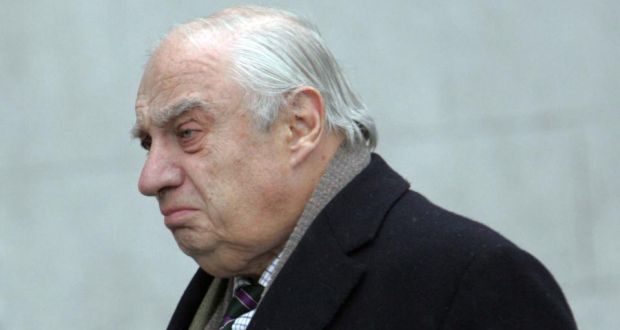Peter Sutherland was a brave and highly competent Attorney General of Ireland, between 1981 and 1984, and also one of its youngest ever. He impressed civil servants and Ministers by his decisiveness and his grace under pressure, especially in dealing with difficult terrorist/extradition cases.
Although his subsequent public and business career took him to live in Brussels, Geneva, Spain and London, he remained deeply committed to this country, and helped Irish causes through his exceptional generosity, notably by donations to educational institutions.
Peter was a loving husband and father, as shown in the beautiful tribute to him paid by his three adult children.
His self-deprecating humour helped him defuse many difficult situations in his business career.
In late 1984, he was appointed to the European Commission. Peter was especially proud of his initiative in setting up the Erasmus Student Exchange programme, which has had a profound and beneficial effect on the lives of hundreds of thousands of young Europeans.
As Competition Commissioner, he was aggressive in pursuing cases of unfair state aid, an activity which sometimes brought him into conflict with the Commission President, Jacques Delors, with President Mitterand and with Mrs Thatcher. He was unafraid and stood his ground, and vindicated the independence of the Commission.
His most remarkable achievement was, as Director General of the GATT, in getting the agreement at a meeting of 130 nations in Marrakesh in 1994 to the establishment of the WTO, and to complex new agreements on textiles and agriculture, designed to help developing nations.
Panels
The WTO established supra-national panels to arbitrate trade disputes. It thus built the foundation for a rules-based international order in international trade, which has contributed to a quarter century of global prosperity. The rules protected the weak as well as the strong.
He was a man of faith, who showed, through his life, that faith and modernity can be reconciled. His talents brought him great success, but he was always conscious of his responsibility to help others and give back to society.
This concern to protect the weak, on the basis of rules understood and accepted by all, inspired his work for asylum seekers and refugees in more recent times.
In his speech to the International Eucharistic Congress in 2012, Peter eloquently demonstrated the connection between his Catholic faith and his commitment to refugees and asylum seekers, many of whom did not share his Christian faith.
He said that the Mass offers us as individuals “a pathway out of our isolation and selfishness” and is an act of communion with others. “For us as Catholics,” he said, “a global outlook should be inescapable.”
He said the challenge of the 21st Century is finding a way to live together in harmony.
He said that migration was making our towns and villages more diverse than ever, but that new technologies were working against the acceptance of diversity by encouraging people to live “wholly separate lives, imprisoned by smart phones and iPads”, that feed our separateness and “block out the community around us”.
He stressed the important role of schools in inculcating charity and tolerance of difference. They must encourage acceptance of multiple identities, and educate children to understand that working together requires effort and compromise, and that “democrats are made, and not born”.
Commitment
Peter Sutherland’s commitment to European Unity also sprang from his Christian faith, something he demonstrated very clearly, when giving the Cardinal Newman lecture in Oxford in 2010.
He said then: “The federalism of the Founding Fathers (of the European Union) was founded upon the belief that national sovereignty, constrained only from within, was not merely dangerous but essentially evil because it postulated a greater power than man alone can possess.”
He continued: “Jacques Maritain, the Catholic philosopher who most influenced the process (of the EU) in its conception wrote ‘God alone is sovereign…this concept (of sovereignty) is intrinsically wrong’.”
He made his talents freely available to the Catholic Church.
He served on a body advising the Vatican on its finances, and headed a Catholic body dealing with Migration, alongside the similar work he did for the United Nations.
He was good company, took great interest in his friends, and looked after them.
He will be remembered with great affection.
John Bruton was Taoiseach from 1994 to 1997, and subsequently served as EU ambassador to the USA.


 Peter Sutherland
Peter Sutherland